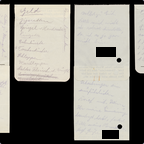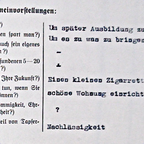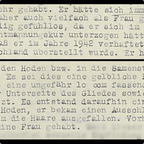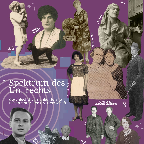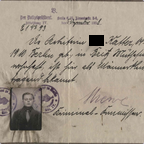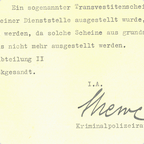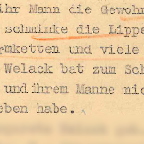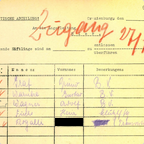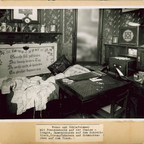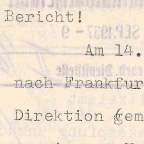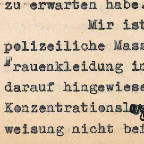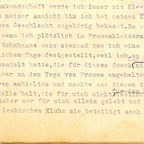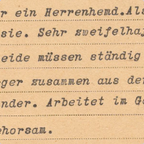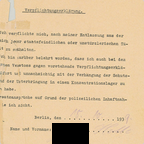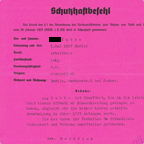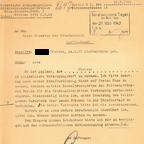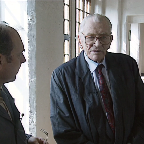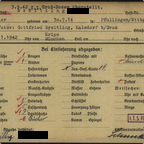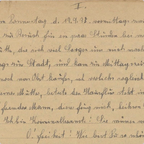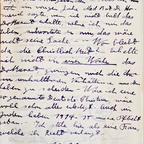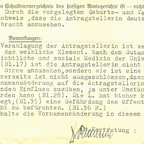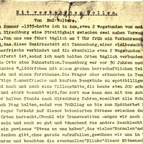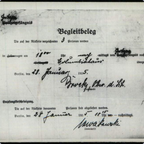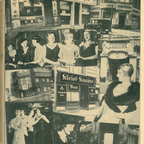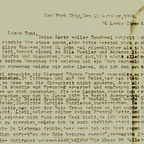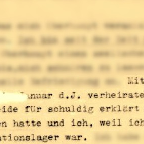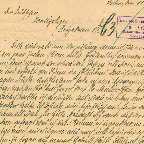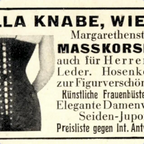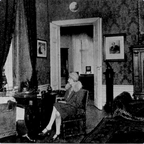Separation of Relationships
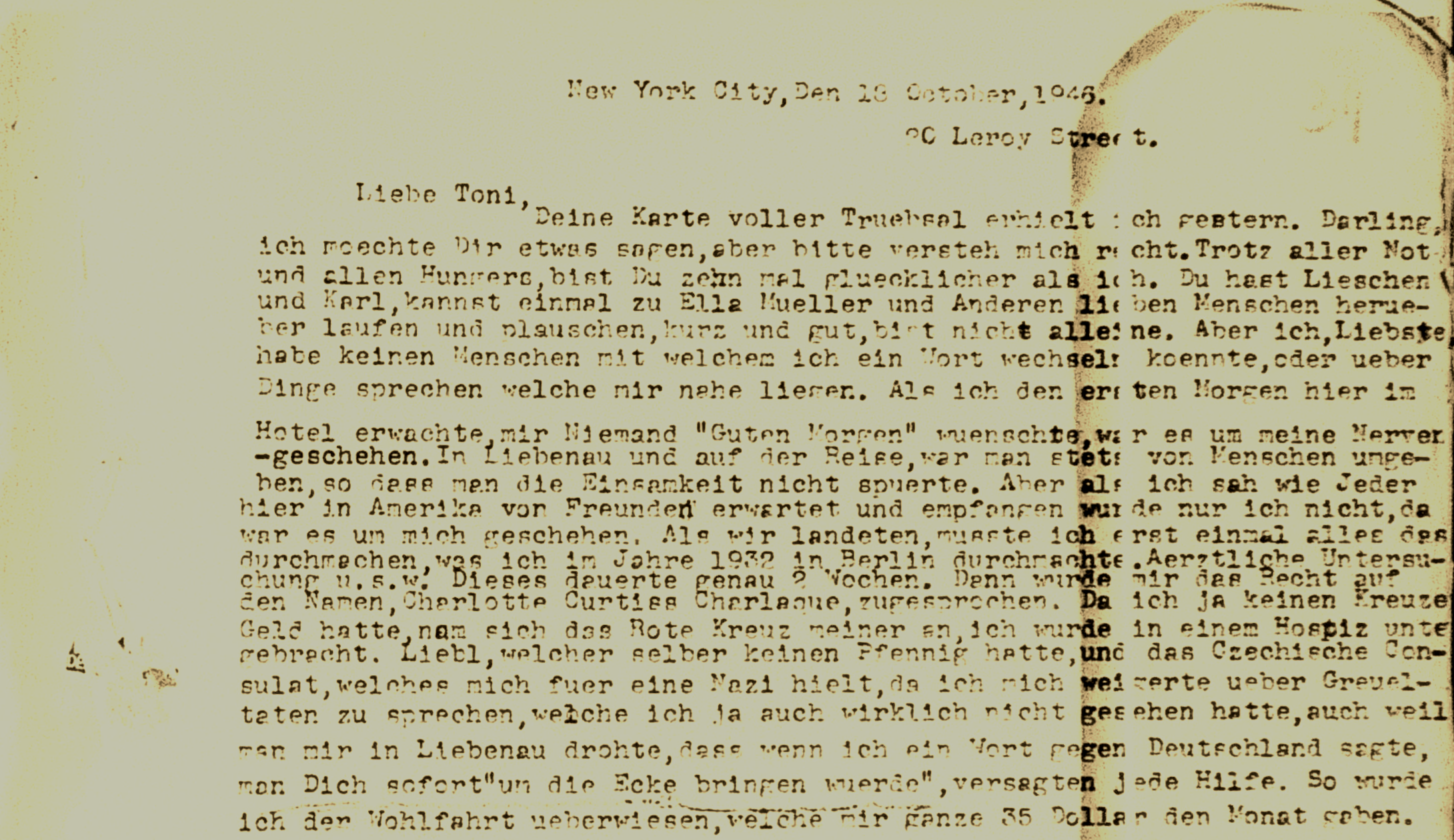
© Berlin State Archives, read full script.
A letter from Charlotte Charlaque to her lover
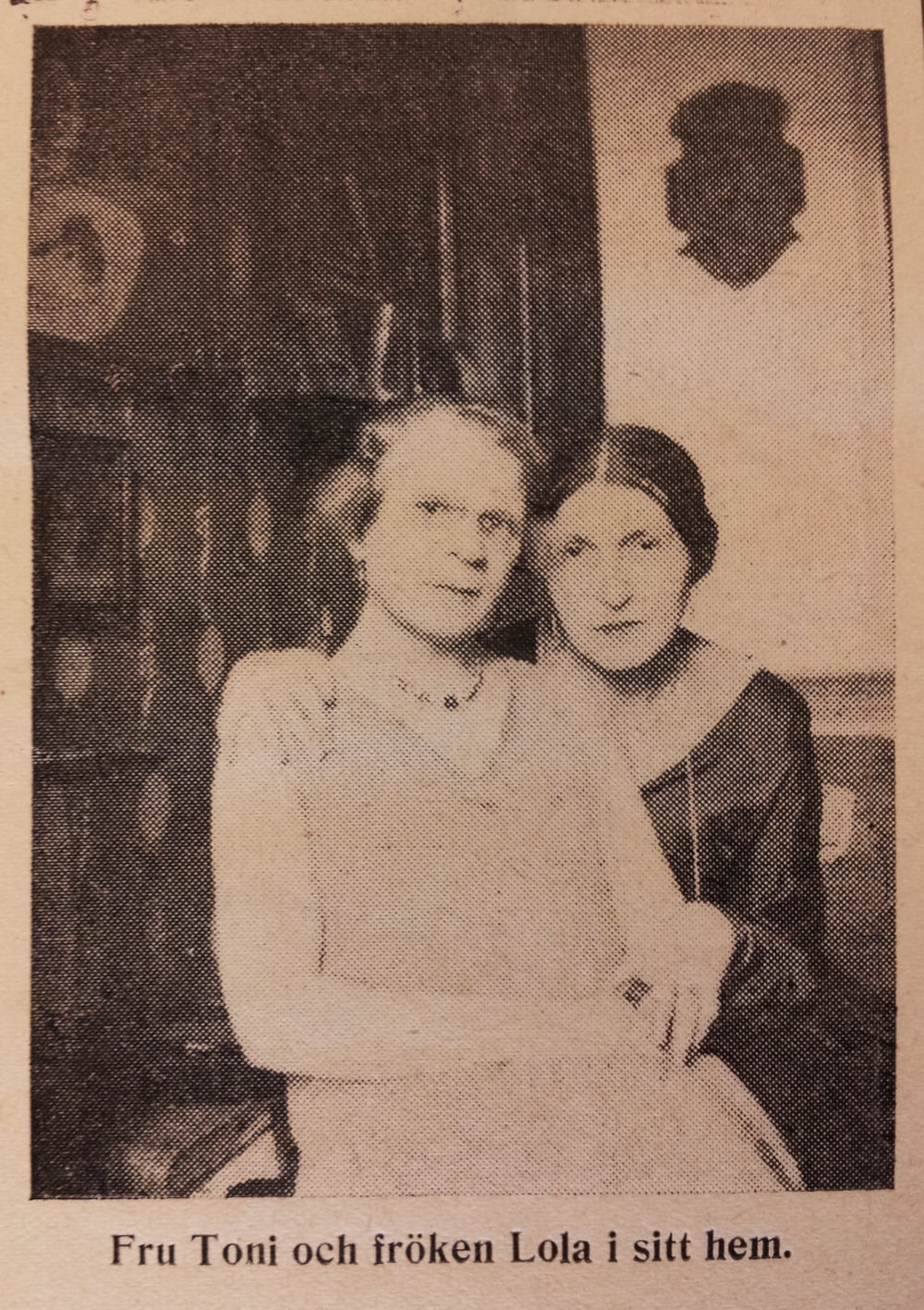
Approx. 1933, photographer: Ragnar Ahlstedt.
This letter was written in exile in New York in 1946, by Jewish transfeminine actress Charlotte Charlaque to her former partner *Toni Ebel. In it, Charlotte laments, among other things, the pain of being separated from her loved ones in Germany as a result of her escape from the Nazi regime. Charlotte never saw her queer family in Berlin again.
Due to the threat of denunciations, prison sentences, moving because of escaping and the forced retreat into the private sphere, many queer people found themselves in situations of separation and isolation. They were separated from friends, partners and family. Friend circles, which were often the only family for queer people, were torn apart.
In some cases, the police or courts ordered a contact ban. For this reason, but also because of the threat of denunciations, meeting people could have been life threatening. For many people, forced separation meant they would never see each other again, especially if they fled abroad or if they or their loved ones died during imprisonment. People facing multiple forms of marginalization, such as Jewish queer people, were particularly affected.

